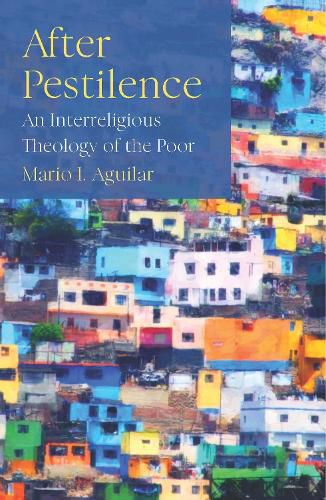Readings Newsletter
Become a Readings Member to make your shopping experience even easier.
Sign in or sign up for free!
You’re not far away from qualifying for FREE standard shipping within Australia
You’ve qualified for FREE standard shipping within Australia
The cart is loading…






This title is printed to order. This book may have been self-published. If so, we cannot guarantee the quality of the content. In the main most books will have gone through the editing process however some may not. We therefore suggest that you be aware of this before ordering this book. If in doubt check either the author or publisher’s details as we are unable to accept any returns unless they are faulty. Please contact us if you have any questions.
Theology, according to liberation theologians is only a second step. The first is praxis. A liberating praxis puts the poor and the marginalised at the centre. It is found in the collective response of global religious communities responding to crises - and a global pandemic offers an important case in point, reminding religions of our shared humanity, and the need for interreligious cooperation and understanding to effect a positive response.
In the context of seismic socio-economic and political change, religion provides a communal response for feeding the poor, fighting for their rights, and challenging the post-colonial financial model that is now beginning to lose its ground.
This book blends an examination of emerging research on the socio-economic impact of the COVID-19 pandemic in marginalised communities, with the author’s own research on social and poverty isolation in India, and his own experience as told in diaries written whilst in lockdown in a poor district of Santiago, Chile. It challenges majority world churches and religions in a post-pandemic world to learn from each other and from Jesus’ own identification with the outcast, and urges them to take on a way of life and prophetic learning from the world of the poor.
$9.00 standard shipping within Australia
FREE standard shipping within Australia for orders over $100.00
Express & International shipping calculated at checkout
Stock availability can be subject to change without notice. We recommend calling the shop or contacting our online team to check availability of low stock items. Please see our Shopping Online page for more details.
This title is printed to order. This book may have been self-published. If so, we cannot guarantee the quality of the content. In the main most books will have gone through the editing process however some may not. We therefore suggest that you be aware of this before ordering this book. If in doubt check either the author or publisher’s details as we are unable to accept any returns unless they are faulty. Please contact us if you have any questions.
Theology, according to liberation theologians is only a second step. The first is praxis. A liberating praxis puts the poor and the marginalised at the centre. It is found in the collective response of global religious communities responding to crises - and a global pandemic offers an important case in point, reminding religions of our shared humanity, and the need for interreligious cooperation and understanding to effect a positive response.
In the context of seismic socio-economic and political change, religion provides a communal response for feeding the poor, fighting for their rights, and challenging the post-colonial financial model that is now beginning to lose its ground.
This book blends an examination of emerging research on the socio-economic impact of the COVID-19 pandemic in marginalised communities, with the author’s own research on social and poverty isolation in India, and his own experience as told in diaries written whilst in lockdown in a poor district of Santiago, Chile. It challenges majority world churches and religions in a post-pandemic world to learn from each other and from Jesus’ own identification with the outcast, and urges them to take on a way of life and prophetic learning from the world of the poor.